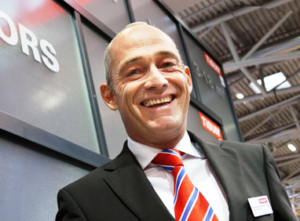European Commission´s First Strategy on Heating and Cooling
February 22, 2016 The European Commission published its long-awaited EU Strategy for Heating and Cooling on 16 February 2016. It was the first time that the commission took the initiative to address exclusively renewable energy use for heating and cooling in buildings and industry, which accounts for 50 % of the EU´s annual energy consumption. Two documents were presented in a press conference on that very day (attached to this news article): a 13-page position paper entitled An EU Strategy on Heating and Cooling, which explains the most important barriers and action fields, and the 200-page Commission Staff Working Document – Review of available information, which was published in two parts.
The European Commission published its long-awaited EU Strategy for Heating and Cooling on 16 February 2016. It was the first time that the commission took the initiative to address exclusively renewable energy use for heating and cooling in buildings and industry, which accounts for 50 % of the EU´s annual energy consumption. Two documents were presented in a press conference on that very day (attached to this news article): a 13-page position paper entitled An EU Strategy on Heating and Cooling, which explains the most important barriers and action fields, and the 200-page Commission Staff Working Document – Review of available information, which was published in two parts. “This is an important milestone to improve the policy framework for the solar thermal sector, as it sets the direction for the incoming EU legislative revisions for 2016,” the European Solar Thermal Industry Federation lauded the publication of the strategy in a press release on 16 February. Indeed, the strategy paper refers several times to the review of the Energy Performance of Buildings Directive (EPBD), the Renewable Energy Directive (REDII) for 2020-2030 and the 2016 Energy Efficiency Directive (EED).
Encouraging building renovation
The strategy paper emphasise the low rate of renovation projects, which account for a mere 0.4 to 1.2 % each year and proposes several countermeasures:
- Creating a comprehensive approach which will promote renewable energy and speed up the replacement of outdated fossil fuel boilers by efficient renewable heating, as well as increase the deployment of renewable energy in the form of district heating and Combined Heat and Power (CHP).
- Using boiler inspections to provide information on the efficiency of existing heating and cooling systems. In a footnote, the authors refer to the label for existing heating boilers, which was introduced in Germany at the beginning of this year and will become mandatory early next year for any boiler older than 22 years.
Increasing the renewable share
Another issue mentioned in several parts of the strategy paper is the need for additional funds and financing models to up the numbers of renewable heating and cooling systems.
- Energy Performance Contracting (EPC) and Energy Service Companies (ESCOs) are viewed as important factors in providing capital to public bodies for the renovation of buildings.
- The European Fund for Strategic Investments (EFSI) is expected to supply at least another EUR 315 billion to boost sustainable energy projects in their strategic priority.
- A ‘Smart Finance for Smart Buildings’ initiative will be introduced to facilitate the aggregation of small projects into investible packages, and with the assistance of the Energy Efficiency Financial Institution Group, to test out a financial institution framework for underwriting procedures in order to account for the impact of energy efficiency in everyday market practice;
Promoting consumer and industry involvement
The clear focus of the strategy document is the building sector as well as residential heating and cooling. The document “falls short in properly identifying tools and solutions” to decarbonise industrial heat processes, ESTIF criticises in its press release. Obviously, the commission still sees a strong need for R&D activities in the field of renewable process heat. Its proposals:
- Integrate the results of industrial and sectoral roundtables into EU R&D initiatives.
- Support research, innovation and demonstration actions funded by Horizon 2020.
- Examine new approaches towards low-temperature heating in the industry.
Nevertheless, ESTIF welcomes the fact that consumers are at the centre of the EU´s energy policies: “We hope these will become more than words, recognising and addressing the decentralised dimension of the heating and cooling sector and the need to engage and support consumers in operating a vital change towards renewable heating and cooling in their homes.”
More information:

